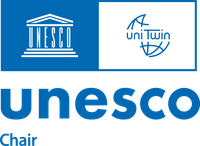Project Investigator: Dr. Sarah Osmane
In order to build sustainable communities it is critical to understand the connection between youth leadership development and community development. Youth leadership is vital to develop, maintain, and sustain communities. Thus, it is critical to provide youth with leadership experiences that allow them to act collectively for the betterment of their communities. Alternatively, while a wide array of programs claim contributions towards community development, they focus on providing youth with individual leadership skills, and do not provide them with opportunities for practice.
This study is designed to understand the factors contributing to the development of youth leaders. A descriptive correlational study was conducted to reach this goal, and a mixed method approach was used. Four public high schools with agriculture program were selected from southeastern Pennsylvania to participate in this study. A total of 421 questionnaires were completed leading to a response rate of 86%. This was coupled with nineteen interviews with teachers and students.
The findings of this research indicate that social support was the most important predictor of leadership skills. This was followed by civic engagement and social interaction variables. Participation in leadership programs was also related to leadership skills. Additionally, gender differences existed in leadership skills, with females showing higher levels.
Much of the leadership skills are formed through support, engagement and interaction. This occurred at schools and in communities. Implications of these findings were presented and served to integrate the processes of youth leadership development and community development.
PDF document, 2.9 MB
This study aimed to measure the relationship between leadership skills, social support, capacity building, and engagement. It reflects input from 421 students enrolled in agricultural programs at Pennsylvanian high schools, who participated in the survey and nineteen teachers and students who took part in the interview. Interviews were designed to provide an overview of the school and community conditions, and to identify the opportunities, barriers, and motivators that influence youth leadership development and civic engagement. Moreover, it provided details about the perceived suggestions of teachers and students to enhance youth leadership development and civic engagement. The data helped to answer the research questions of the study, identify differences between community and magnet schools, provided the basis for policy development suggestions, and enabled suggestions for future research.




